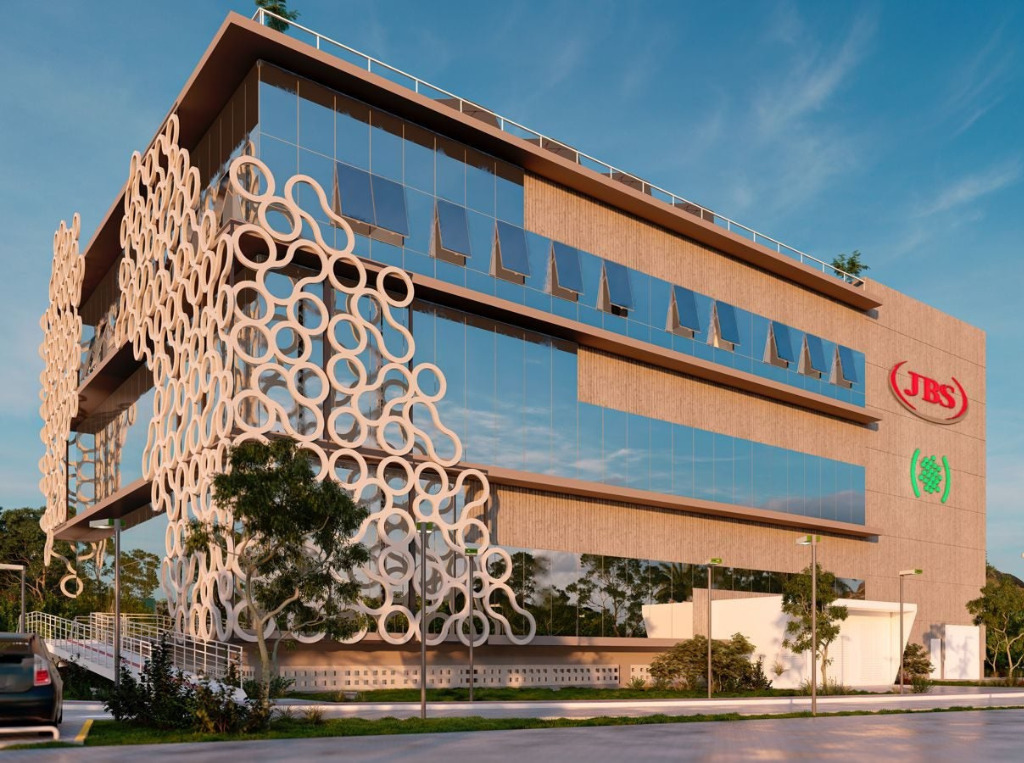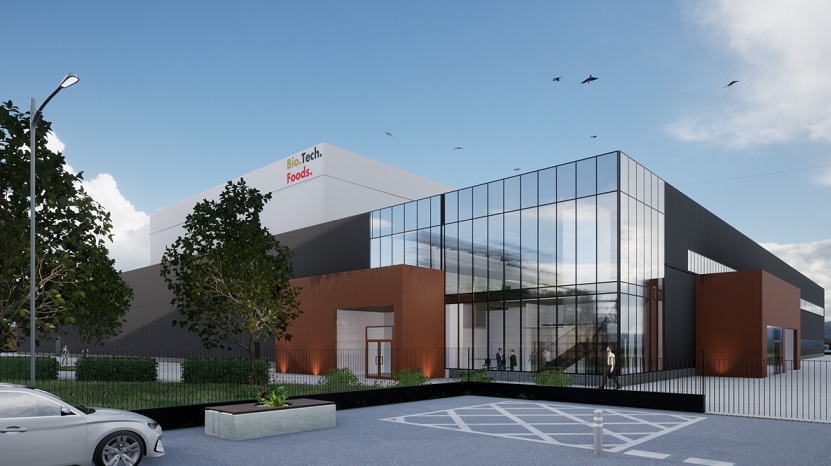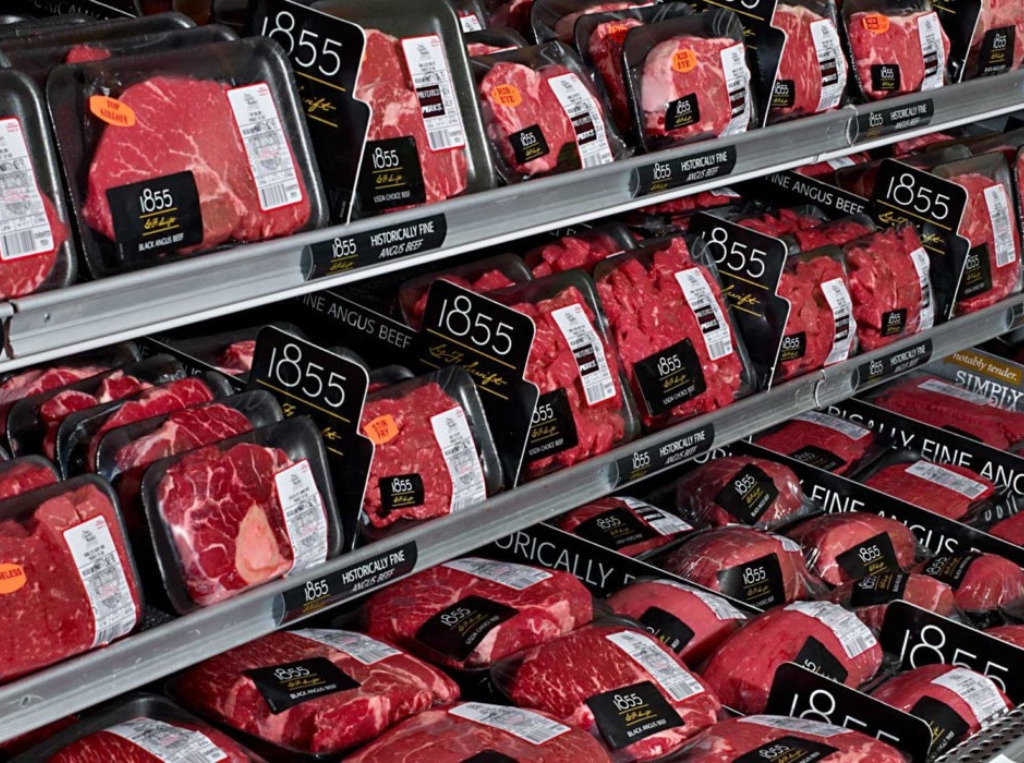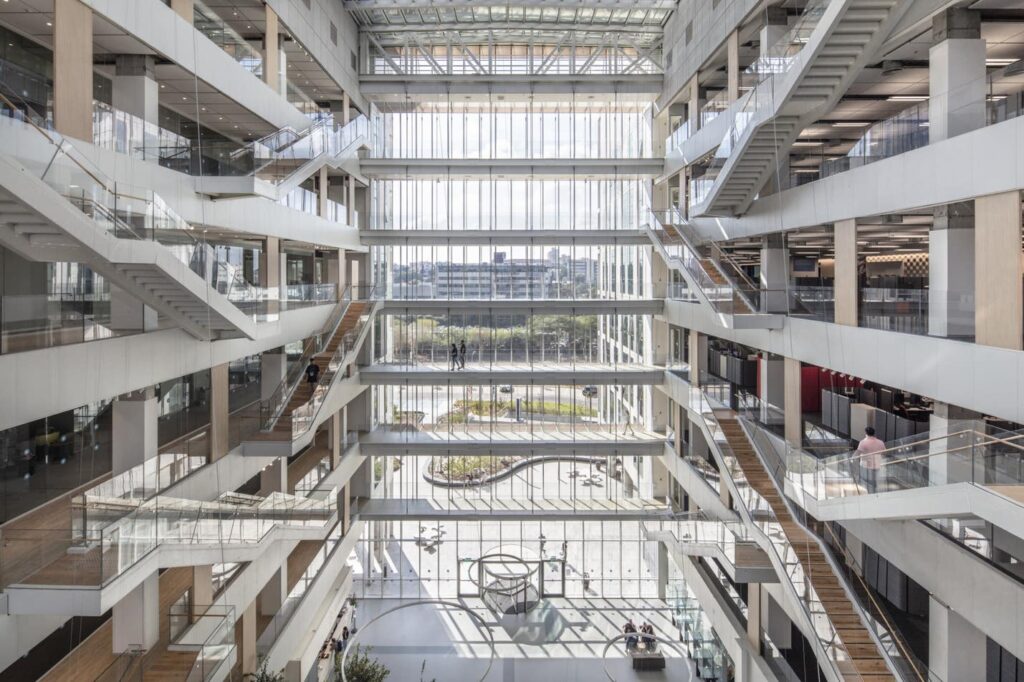
Brazilian meat giant JBS has broken ground on a $62M cultivated meat research and development facility in Florianópolis, Santa Catarina. Billed as the largest food biotech centre in Brazil, it’s scheduled to open at the end of 2024. The world’s biggest meat company – and a highly controversial one at that – is aiming to produce cell-cultured beef in the future.
The JBS Biotech Innovation Centre will see the meat company invest funds in three phases, with the total required capital estimated to be $62M. It will invest $22M in the first stage, which will focus on the construction of lab facilities, and the second phase centred on a pilot plant. In the third stage, JBS will look to build an industrial-scale model to exhibit the technical and economic potential of cultivated proteins.
The new R&D hub will feature a scientific team of 25 specialist post-doctoral researchers, plus staff and clerical support. The project is designed to serve as a base for future facilities that JBS may work on to manufacture cultivated beef and other meat products. The aim is to make the production of cell-cultured meat more affordable, efficient and scalable.
Cultivated beef endorsed by a conventional meat giant

JBS first declared the project in 2021, when it earmarked about $100M for investment in the cultivated meat sector. Out of this, $41M was set aside to invest in Spanish cell-based meat startup BioTech Foods. Last year, the latter broke ground on what it claims is the world’s largest cultivated beef manufacturing facility in San Sebastián, which is slated to finish by mid-2024.
The plant will reportedly have a capacity to produce 1,000 tonnes of cultivated meat annually, with the potential to quadruple this output. JBS says that while the factory will focus on products like sausages, burgers and meatballs, BioTech Foods’ tech can expand beyond beef to include cell-cultured chicken, pork and fish.
“As a global leader in protein production, it is our responsibility to be at the forefront of food tech,” said JBS’s global supply and innovation director Jerson Nascimento Jr. “The JBS Biotech Innovation Centre reinforces our commitment to the cultivated protein sector, consolidates our position as one of the main players in this very promising market, and reinforces our commitment to offering innovative, high-quality products to our consumers.”
The new plant is being led by Luismar Marques Porto, its cultivated meat president, and Fernanda Vieira Berti, VP of the research facility. Scientists at the JBS Biotech Innovation Centre – which will be located at the Sapiens Parque innovation hub – have already begun working at temporary facilities to research beef cell cultivation.
“We are delighted to be part of the first initiative of this size in Brazil and to be able to contribute to studies that will help expand the sector. We are confident this project will become an international benchmark,” said Porto.
JBS isn’t the only meat giant that has invested in the cultivated protein sector. In 2018, Tyson Foods acquired a minor stake in cultivated meat leader Upside Foods (then called Memphis Meats) – which is one of the only two such companies that have received regulatory approval for sale in the US. Upside Foods also received investment from Cargill (in 2017 and 2020), which invested in Israeli startup Aleph Farms in 2019 as well.
JBS remains a problematic company on the climate front

When the world’s largest meat company – with assets worth nearly $40B – makes a move this big for alt-protein, it’s bound to attract interest. But despite the company’s purported support of slaughter-free animal meat production, JBS has a checkered record when it comes to ethical and environmental issues. In fact, JBS is under pressure from environmental groups that are urging the US Securities and Exchange Commission to block its IPO in the country, calling it the “biggest climate risk IPO listing in history”.
The company has a well-documented past of greenwashing and human rights abuses. While it may be making plans to produce cultivated meat, JBS increased its greenhouse gas emissions by 51% between 2016 and 2021 – additionally, its total emissions were actually 68 times higher than what it claimed. Moreover, JBS has been found to be among the biggest drivers of Amazon deforestation, with the number of slaughterhouses in the region more than doubling between 2009 and 2020.
Meanwhile, earlier this year, JBS was accused of child labour abuses, with two dozen minors allegedly hired by a cleaning company to clean JBS’s dangerous meatpacking plants across the US. And in World Animal Protection’s list of the meat industry’s climate impact, the company ranks as the worst offender globally.
JBS’s integrity was called into question in an exposé ahead of COP26 in 2021, with multiple breaches found just six months after its publication. This included settling with the US Department of Justice over a price-fixing scheme in beef markets, gaining approval or agreeing to settle over poultry and pork price fixing, respectively, and being fined over a fatality at one of its facilities.
In a statement, Rainforest Action Network lists the practices JBS has been accused of over the last 15 years: “Illegality; deforestation; invasion and land grabbing of Indigenous and traditional territories; land conflicts and violence against rights defenders, slavery and labour abuses in its supply chain; lack of traceability; corruption; and greenwashing.”
Cultivated meat facilities around the world

There are several large-scale cultivated meat facilities by alt-protein startups that are already operational or mid-construction. These differ from pilot plants, which are pre-commercial manufacturing systems to test the technology in small volumes. Shanghai-based CellX, for example, completed the construction of what it called a “large-scale pilot plant” last month.
In February last year, Aleph Farms moved to a 65,000 sq ft plant in Rehovot, Israel, which increased its capacity by six times to be able to initially produce 10 tonnes of cultivated steak annually. And earlier this year, it announced the acquisition of another manufacturing facility in Modi’in, Israel.
In December 2022, fellow Israeli producer Believer Meats (formerly Future Meat) broke ground on a 200,000 sq ft facility – which it says will be the largest cultured meat factory in the world when it opens. It is said to have a capacity of at least 10,000 metric tons of cell-based meat, which is more than double the potential output of the JBS-BioTech Foods plant.
In May, Mosa Meat – which showcased the world’s first cultivated beef burger 10 years ago – unveiled what it claimed is currently the world’s largest cultivated meat production plant in Maastricht, Netherlands. This is the company’s fourth facility, expanding its footprint to 7,340 sq m (79,007 sq ft). Mosa Meat says its “cultivated meat campus”, which has a 1000-litre bioreactor scale, can produce “tens of thousands of cultivated hamburgers”.
Earlier this month, Upside Foods began construction of a 187,000 sq ft factory in Glenview, Illinois, which can eventually produce 30 million pounds of meat and seafood annually. This follows its Engineering, Production and Innovation Center (EPIC) plant, which can currently produce 50,000 lbs of finished cultured meat products annually, with the potential to expand to 400,000 lbs though a recent Wired investigation raised questions about whether the company was producing its products in the facility’s bioreactors.
Meanwhile, Eat Just’s Good Meat – the other company to earn regulatory approval in the US, and the first to do so globally in Singapore back in 2020 – is building what it says is Asia’s largest cultured meat plant in Singapore. It also signed an agreement for a US facility that will house 10 250,000-litre bioreactors, which it says will be capable of producing 30 million lbs of meat.
Over in Asia, Malaysian company Cell AgriTech is preparing to open the country’s first cultivated meat facility in Q4 2024, while South Korean cultured beef producer Seawith announced a ₩6.5B ($5.43M) investment last year, which it plans to use for a state-of-the-art production plant.
The post The World’s Largest Meat Company is Building a Cultivated Protein R&D Facility appeared first on Green Queen.
This post was originally published on Green Queen.